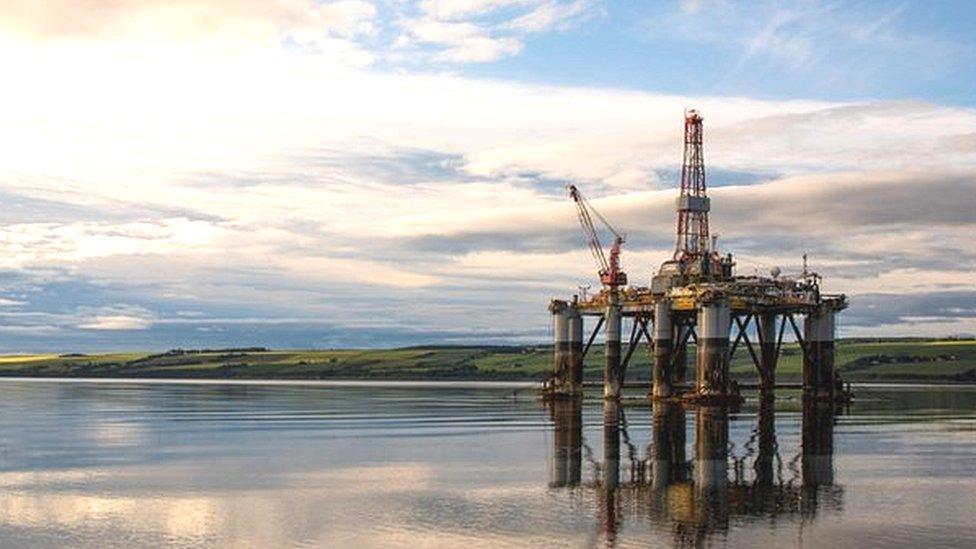Offshore Energies UK report: Oil and gas fight for survival
- Published
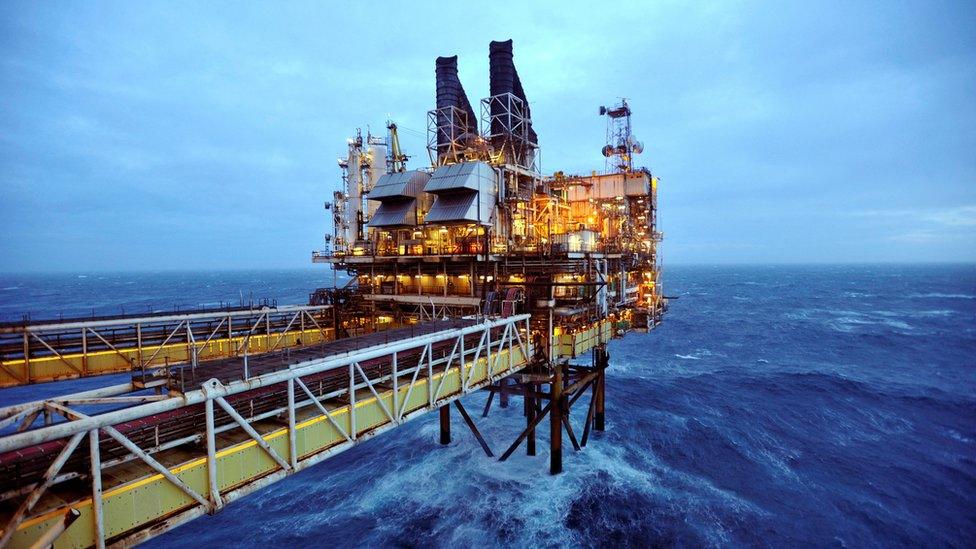
Offshore Energies UK has published its annual business report
Offshore energy's trade body is pushing back against campaign damage to its reputation and political harm to its prospects.
Unpredictable tax changes on Britain's oil and gas production are making the industry "uninvestable" to internationally mobile finance, it is claimed.
While climate change campaigners say fossil fuel emissions are already busting temperature limits, the case for continued supply is that there will continue to be demand.
If only everything could be reduced to a three-word slogan: "Take Back Control" or "Yes We Can".
The "Just Stop Oil" campaign group tells us it's a question of justice and it's simple - "just" like that.
The fossil fuels industry is struggling to find a simple response. With equal and opposite simplification, it could be "You'll Need Us".
But the argument set out in the annual business report of Offshore Energies UK is much more complex than that. And in the battle for the survival of the oil and gas industry in British waters, the stakes are high.
That yearly report used to be an upsum of industry drilling activity and investment plans, with big, impressive numbers for employment and impact.
This one admits that the previous £200bn investment forecast for this decade now look more like £160bn, and that's if politicians get off their case. A lot of that is yet to be committed, and industry is proving reluctant to make that commitment while Britain battles over the pace of transition to net zero carbon emissions.
This year's report is more of an argument against execution - a plea of mitigation by an industry that has swiftly moved from blue chip to polluting pariah.
With four recent tax rises from Conservatives, and Labour wanting to go further with the windfall tax as well as putting the brakes on new licences for drilling, OEUK says Britain is looking increasingly "uninvestable".
It is reminding the government today that it thought it secured a North Sea Transition Deal three years ago, but doesn't recognise it in the more hostile environment it now faces.
The trade body last month made its case to Labour's Treasury team, and says the discussions continue. But it also knows it has to win hearts and minds across the public too.
Public sympathy
The big carrot of a smooth and successful transition from fossil fuels to renewables could be £450bn of investment by 2040, and many jobs that could go with that.
More than half of that big number would be offshore wind power, if governments and regulators can secure the best possible sequence of planning consents and grid connections. A big 'if'.
Hydrogen could be worth £25bn - much of it using renewable power, much of it cracking gas. The prospect here is growth to equal the scale of the electricity industry by the middle of the century. Carbon capture and storage could bring £34bn in investment.
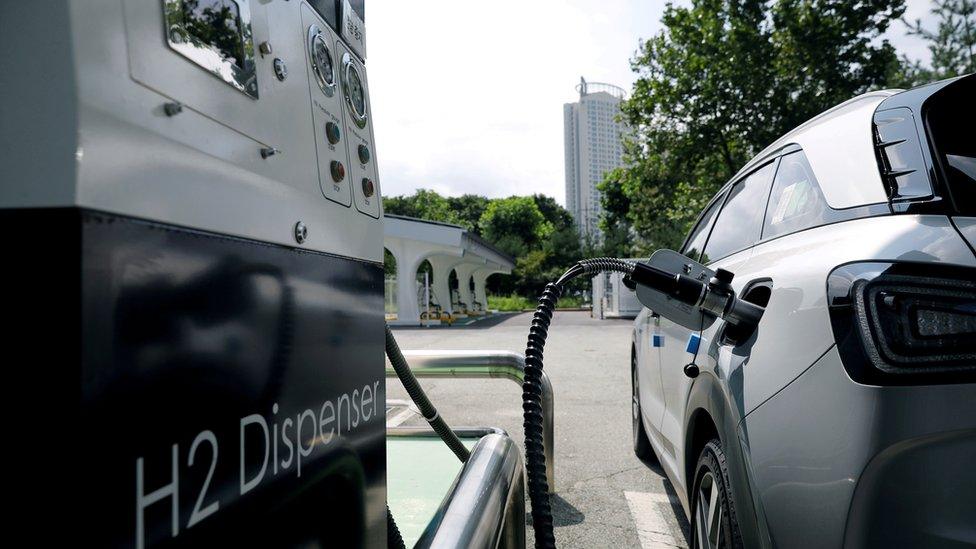
Hydrogen fuelled cars have been on UK roads in small numbers for decades
The controversial bit is the £145bn that the industry reckons could still be invested in oil and gas under British waters. It is emphasised this is not the value of the industry for the big producers associated with outrageously large profits, but the contract value to the supply chain.
There is likely to be more public sympathy and a lot more jobs in the companies supplying services and making more modest profits, across drilling, engineering, logistics, shipping, cables and catering, as well as finance, accountancy, law and geology expertise.
How many jobs? The OEUK says 200,000 are supported by oil and gas, and UK ministers use that figure to make the case for drilling with more vigour.
But the number is being contested by anti-oil campaigners, suggesting that the economic argument is getting some traction.
The next bit of the industry's case is that oil and gas should be allowed to keep drilling while it makes the transition into renewable energies.
It has mapped skills from one to the other, reckoning oil and gas can provide between 60 and 80% of the expertise required.
Ditch that expertise before the renewables investment ramps up, goes the argument, and Britain will have to import skills and equipment, as it already does in large-scale fabrication and shipbuilding.
Conversely, retain those skills, deploy them in renewables, and there will be an export market within 15 years worth more than £1,000bn. That's another suspiciously round number.
Declining trend
The part of the argument that affects us all is that there is nothing simple about "just" stopping oil and gas, when our collective demand and the need for it remains so high.
The industry doesn't quite say it, but there's a subliminal message: you depend on our produce, so don't blame us for giving you what you want, and need to lubricate your economy, keep you warm through the winter and go on holiday.
Of all the UK's energy needs - across transport, heating, industry and power - oil and gas accounted for around 74% last year. From 2022, demand for gas was down 11% and oil was up 2%, mainly because more planes were flying post-pandemic.
Even on the 'balanced pathway' to net zero by 2050, which has been set out by the Committee on Climate Change, oil and gas will continue to provide a fifth of that energy by mid-century. If so, it will then have to be fully offset, much of it by carbon capture and storage (a technology which anti-oil campaigners see as merely an excuse to keep drilling).
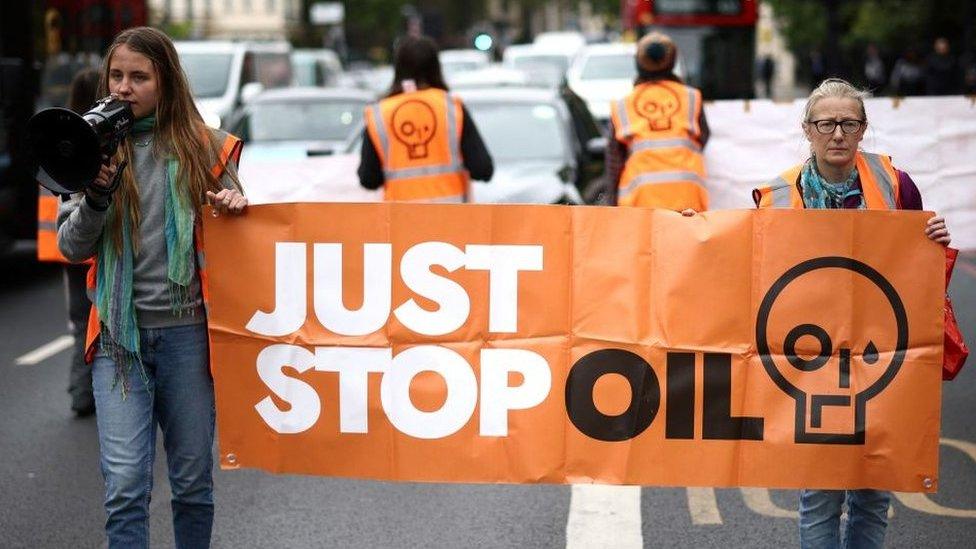
Just Stop Oil protesters stop traffic in London in June last year
Production from UK waters met 47% of gas demand last year, and 57% of oil demand (a net figure, because much oil goes overseas for refining, and Britain buys back refined product sourced from lots of places).
At 1.2 million daily barrels of oil or its equivalent, that was the lowest output since 1977.
It has fallen 28% since 2019, when output was flowing from big investments earlier last decade. OEUK expects annual decline averaging at least 8% per year from now.
If investment doesn't keep flowing to tap into further reserves, that declining trend could be as high as 15% per year. Gas output is forecast to fall faster than oil, and at a much faster pace than gas central heating is being replaced.
No great loss, you might say. Climate scientists tell us that we cannot sanction more production without busting through 1.5 degrees of warming.
But if UK demand declines on current projections, much more imported energy will be required. The liquified gas comes with a much bigger carbon footprint, and as production declines globally, the remaining big exporters may have the rest of us over a barrel.
Rate of return
It is not only that tax is weighing heavily on profitability, with Harbour Energy, now the biggest producer from UK waters, recently reporting an effective tax rate of 95%.
It is also claimed that the windfall tax is being applied to profits that no longer reflect a windfall. The trade body shows that gas prices are getting close to their levels before Russia started sabre-rattling on the Ukrainian border. Flows have stepped up from Norway and shiploads of Liquified Natural Gas.
Oil prices are down from the Ukraine war highs, but are trending at relatively high levels. Since the start of this year, the benchmark Brent crude price has risen from $76 to $87 per barrel.
On the other side of the financial equation for oil companies, the cost of drilling the average barrel is up 50%, says OEUK. And without big new fields coming on stream, that unit cost will surely rise. It is claimed the rate of return on investment has dropped to 3% - lower than many other sectors.
None of this is likely to win the sympathy of environment campaigners, who note the vast profits made by producers down the years and around the world.
But among others, and particularly those contesting the Westminster election due in the next ten months, the industry wants to push back on simple slogans.
Related topics
- Published7 March 2024
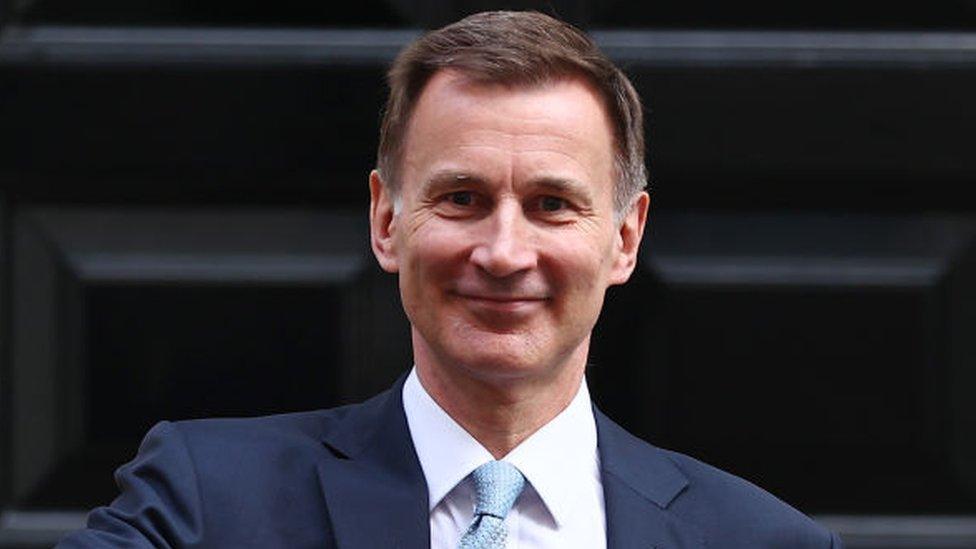
- Published22 October 2024
